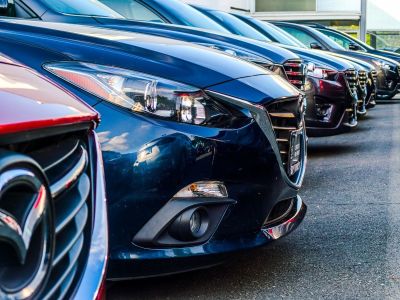Ask Chuck: A simple plan to avoid new car depreciation
Dear Chuck,
I like nice cars. However, I just paid off a new car that I purchased, and I learned what depreciation means — the hard way. I am determined to drive it as long as I can. Do you have any tips to help me avoid financing one in the future?
Car Depreciation Drives Me Crazy

Dear Car Depreciation Drives Me Crazy,
I am sorry you have had to learn the hard way about the steep depreciation of a new car. It is so costly that I don’t think the average purchaser would agree to do it if they calculated the amount in advance. A great outcome of this experience is that you never have to repeat it!
Here is the plan: take great care of the car you have, save money to buy your next car (used) with cash, and escape car payments and new car depreciation from now on.
Here are some helpful tips to be a good steward of your vehicles.
Keep cars well maintained
Routine oil changes and maintenance are key. The car will run better, you will get better gas mileage, and expensive repairs can be avoided. Besides prolonging the life of the car, you will increase safety, knowing it will not break down unexpectedly. Here is a good guide for scheduling maintenance.
We typically do whatever maintenance our trusted mechanic tells us is essential. We prefer to spend money on prevention than to be caught with inopportune repairs. For example, we just spent over $1,000 on new tires. The ride is smoother and quieter, but at that price, I want to take care of them by rotating regularly and inflating properly.
Hand wash and wax it. You can save yourself hundreds of dollars with these 20 Cleaning Secrets Only Car Detailers Know. Drive-through washes can actually damage a vehicle. DIY washing protects the paint job while removing dirt, sap, salt, and more. Experts say to wash biweekly, or as needed, and wax every one to three months. I use a shop vac and an inexpensive pressure washer. Initially, you will need to invest in some supplies. If you live near saltwater or where roads are salted in winter, get some salt-removing spray or vinegar. Condition leather seats every one to two months, along with interior surfaces. A little elbow grease goes a long way in protecting both the inside and outside of your vehicle.
Consider where you park. When on dirt, the undercarriage is exposed to dampness, which can cause rust. When exposed to the sun, a windshield shade will guard the dashboard and decrease interior temperatures.
Prevent rodents and insects. A few years back, squirrels ate through the hoses under the hood of our car, costing me several hundred dollars to replace. Keep the interior of your car clean, and set any traps inside and outside when necessary.
Use your senses. Don’t ignore things you see, smell, or hear that are out of the ordinary. Procrastination can be expensive!
Do not carry unnecessary weight in the car. Simply decluttering your trunk and cargo area will eliminate extra stress on the engine, mechanical system, and suspension parts of your car. Plus, you will get better gas mileage!
Extend the life of the battery
- Avoid frequent short trips.
- Avoid draining the battery. Turn off all lights, and close doors, trunk, and glove compartments.
- Avoid extreme heat or cold. Use a carport or garage when possible.
- Remove corrosion.
- Check that it is properly fastened if frequently driving on bumpy roads.
- When not driving regularly, start the vehicle weekly, or use a trickle charger.
- If an older vehicle has a wet cell battery, regularly top it off with distilled water.
Here is a list of ways to prepare your car for fall.
Budget for repairs and maintenance
Start with $100/month for newer vehicles, more for older ones. Anticipate what needs to be done in the future and set aside extra money when possible. Take advantage of tire sales and find a reputable mechanic or dealership that you can trust.
When to replace a car
When it comes time to replace a vehicle, October, November, and December are good months to consider buying. Dealers need to move old models since new ones are arriving on their lots. See these tips for optimal times to buy. AAA reports that the price of new car ownership continues to climb. That is why I recommend buyers try to find a dependable used car if at all possible. Check out this study of cars, trucks, and SUVs that are most likely to last more than 250,000 miles. Hint: the top five are all Toyotas.
Now that yours is paid for, you can begin socking away money in a replacement vehicle account. Consider applying your car payment to an account specifically dedicated for cars. This way you will be prepared to purchase one in the future without having to pay interest. You learned a valuable lesson on depreciation. So move forward with joy along with the responsibility and privilege to steward that vehicle — and everything else that passes through your hands.
“Moreover, it is required of stewards that they be found faithful” (1 Corinthians 4:2 ESV).
I’d like to invite you to join a free Crown Bible study on the YouVersion app. We have several devotionals regarding money and stewardship that will help bring God’s Word into your daily life.
Chuck Bentley is CEO of Crown Financial Ministries, a global Christian ministry, founded by the late Larry Burkett. He is the host of a daily radio broadcast, My MoneyLife, featured on more than 1,000 Christian Music and Talk stations in the U.S., and author of his most recent book, Economic Evidence for God?. Be sure to follow Crown on Facebook.




























